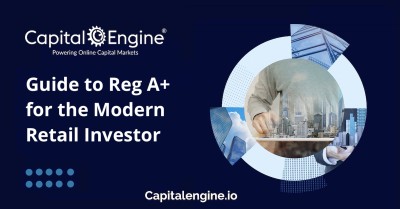SEC RULE CHANGE A BOON TO FAMILY OFFICES

Article posted by Michael Katz in Chief Investment Officer
New accredited investor definition will include family offices with at least $5 million in assets.
The US Securities and Exchange Commission (SEC) recently adopted amendments to change its definition of an “accredited investor” to make the requirements more meritocratic rather than being based solely on wealth. The definition helps determine who is eligible to participate in America’s private capital markets.
The amendments allow investors to qualify as accredited investors based on professional knowledge, experience, or certifications in addition to the existing qualifications, which had been based solely on income or net worth. The amendments also expand the list of entities that may qualify as accredited investors, including by allowing any entity that meets an investments test to qualify.
“For the first time, individuals will be permitted to participate in our private capital markets not only based on their income or net worth, but also based on established, clear measures of financial sophistication,” SEC Chairman Jay Clayton said in a statement.
Prior to the change, investors who did not meet specific income or net worth tests, regardless of their financial acumen, were not allowed to invest in private markets. The SEC said the amendments “update and improve” the definition to more effectively identify institutional and individual investors that have the knowledge and expertise to participate in private markets.
The biggest beneficiary of the rule change could be family offices, as the amendments to the accredited investor definition include family offices with at least $5 million in assets under management.
“Family offices may have been in more of a gray area because the rules are not clearly defined, so I think it does open it up, especially for family offices that want to invest in private funds,” Amy Lynch, founder and president of regulatory consultant FrontLine Compliance, said in an interview with CIO.
Lynch is a former special investigator with the Financial Industry Regulatory Authority (FINRA) and a former staff accountant at the SEC. She was also chief compliance officer at E*TRADE Financial.
“[Family offices] are always looking for new and interesting places to put their money to diversify and going in to these different types of private offerings is one way to do that,” Lynch said. “And now they have a broader universe to select for their investments.”
According to survey data from UBS’ 2020 Global Family Office report, more than two thirds (69%) of family offices view private equity as a key driver of returns. The report also found that 73% of those investing expect private investments to deliver higher returns than public investments. And 48% said they invest in private equity to access a broader range of opportunities as fast-growing companies are increasingly remaining private or raising growth capital outside public markets.
Lynch said the inclusion of family offices will also be a boon for marketers of private offerings.
“I think it’s great for marketing for private funds that are trying to raise capital and want to start a new fund,” Lynch said. “It expands their universe of candidates that they can solicit to.”
In addition to the $5 million asset requirement for family offices, the amendment including family offices stipulates that a family office cannot be formed for the specific purpose of acquiring the securities offered, and must be directed by someone who has “knowledge and experience” in financial and business matters so that he or she is capable of evaluating the merits and risks of the prospective investment.
The amendment also includes family office clients as accredited investors. They are typically family members, former family members, and certain key employees of the family office, as well as some of their charitable organizations or trusts.
“We continue to believe that family offices and their family clients can sustain the risk of loss of investment, given their assets,” the SEC said in its final rule. “We also continue to believe that certain protections otherwise afforded to less financially sophisticated investors by federal securities laws are not necessary to protect family offices or their clients.”
Read more ...
About Capital Engine Powering Online Capital Markets®
Capital Engine® is a financial technology company, providing investment professionals and advisors (Broker Dealers, Family Offices, Wealth Managers, Incubators, Accelerators, RIAs, GP/LPs and real estate funds) with customized SaaS solutions to power private label capital and alternative investment platforms, with a strong focus on investor management services.
Capital Engine's software helps leverage the opportunity to better originate and showcase a diverse selection of private investment deals and offer these to investors (HNW, UHNW and Family Office) i.e. a deal’s potential viability can be better assessed, market appetite determined and transaction promptly closed.
Strategic Partnership Model
Our business model is to partner with industry experts in real estate, venture capital, healthcare, renewable energy, cannabis, impact funding and crypto projects, in setting up investment platforms, online marketplaces and trading exchanges using our software.
Online Marketplace
Our online marketplace is filling a massive gap in the US market in funding private capital markets and alternative investments: Reg D 506 (c) and Reg S (International) based real estate, venture capital, healthcare, renewable energy, social impact and crypto projects, with UK and South Africa platforms following soon.
Click for more info or to request an online demo
New accredited investor definition will include family offices with at least $5 million in assets.
The US Securities and Exchange Commission (SEC) recently adopted amendments to change its definition of an “accredited investor” to make the requirements more meritocratic rather than being based solely on wealth. The definition helps determine who is eligible to participate in America’s private capital markets.
The amendments allow investors to qualify as accredited investors based on professional knowledge, experience, or certifications in addition to the existing qualifications, which had been based solely on income or net worth. The amendments also expand the list of entities that may qualify as accredited investors, including by allowing any entity that meets an investments test to qualify.
“For the first time, individuals will be permitted to participate in our private capital markets not only based on their income or net worth, but also based on established, clear measures of financial sophistication,” SEC Chairman Jay Clayton said in a statement.
Prior to the change, investors who did not meet specific income or net worth tests, regardless of their financial acumen, were not allowed to invest in private markets. The SEC said the amendments “update and improve” the definition to more effectively identify institutional and individual investors that have the knowledge and expertise to participate in private markets.
The biggest beneficiary of the rule change could be family offices, as the amendments to the accredited investor definition include family offices with at least $5 million in assets under management.
“Family offices may have been in more of a gray area because the rules are not clearly defined, so I think it does open it up, especially for family offices that want to invest in private funds,” Amy Lynch, founder and president of regulatory consultant FrontLine Compliance, said in an interview with CIO.
Lynch is a former special investigator with the Financial Industry Regulatory Authority (FINRA) and a former staff accountant at the SEC. She was also chief compliance officer at E*TRADE Financial.
“[Family offices] are always looking for new and interesting places to put their money to diversify and going in to these different types of private offerings is one way to do that,” Lynch said. “And now they have a broader universe to select for their investments.”
According to survey data from UBS’ 2020 Global Family Office report, more than two thirds (69%) of family offices view private equity as a key driver of returns. The report also found that 73% of those investing expect private investments to deliver higher returns than public investments. And 48% said they invest in private equity to access a broader range of opportunities as fast-growing companies are increasingly remaining private or raising growth capital outside public markets.
Lynch said the inclusion of family offices will also be a boon for marketers of private offerings.
“I think it’s great for marketing for private funds that are trying to raise capital and want to start a new fund,” Lynch said. “It expands their universe of candidates that they can solicit to.”
In addition to the $5 million asset requirement for family offices, the amendment including family offices stipulates that a family office cannot be formed for the specific purpose of acquiring the securities offered, and must be directed by someone who has “knowledge and experience” in financial and business matters so that he or she is capable of evaluating the merits and risks of the prospective investment.
The amendment also includes family office clients as accredited investors. They are typically family members, former family members, and certain key employees of the family office, as well as some of their charitable organizations or trusts.
“We continue to believe that family offices and their family clients can sustain the risk of loss of investment, given their assets,” the SEC said in its final rule. “We also continue to believe that certain protections otherwise afforded to less financially sophisticated investors by federal securities laws are not necessary to protect family offices or their clients.”
Read more ...
About Capital Engine Powering Online Capital Markets®
Capital Engine® is a financial technology company, providing investment professionals and advisors (Broker Dealers, Family Offices, Wealth Managers, Incubators, Accelerators, RIAs, GP/LPs and real estate funds) with customized SaaS solutions to power private label capital and alternative investment platforms, with a strong focus on investor management services.
Capital Engine's software helps leverage the opportunity to better originate and showcase a diverse selection of private investment deals and offer these to investors (HNW, UHNW and Family Office) i.e. a deal’s potential viability can be better assessed, market appetite determined and transaction promptly closed.
Strategic Partnership Model
Our business model is to partner with industry experts in real estate, venture capital, healthcare, renewable energy, cannabis, impact funding and crypto projects, in setting up investment platforms, online marketplaces and trading exchanges using our software.
Online Marketplace
Our online marketplace is filling a massive gap in the US market in funding private capital markets and alternative investments: Reg D 506 (c) and Reg S (International) based real estate, venture capital, healthcare, renewable energy, social impact and crypto projects, with UK and South Africa platforms following soon.
Click for more info or to request an online demo
Latest Articles





